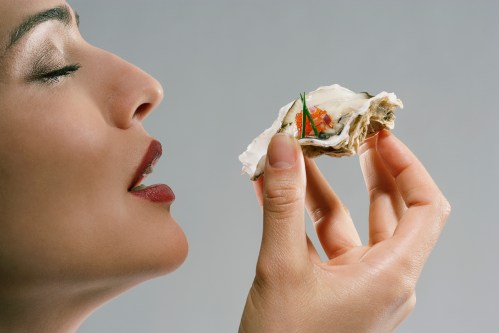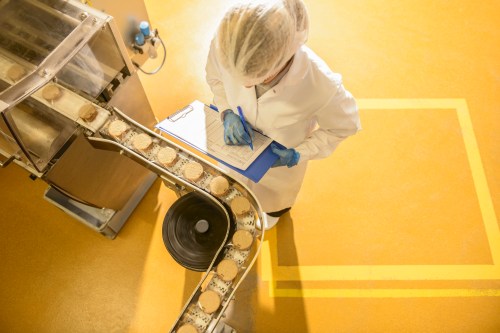Ever bitten into a big, juicy piece of watermelon and immediately wanted to jump on the nearest human being? Regardless of if you answered yes or no to that, just know you’re not alone in your curiosity on aphrodisiacs.
According to Dr. Abbey Thiel, a food scientist, there’s no clear, definitive answer as to whether aphrodisiacs are real or effective. “For every study that says certain foods can affect libido/sexual desire, there’s another study that says no they do not,” she explains.
What’s an aphrodisiac?
The Food and Drug Administration (FDA) defines an aphrodisiac as “any product that bears labeling claims that it will arouse or increase sexual desire, or that it will improve sexual performance.”
However, certain studies have pointed out , there are currently no FDA-approved medications on the market for women which treat lower libidos—so many choose to try out products they’ve already got in their pantry instead. Thiel notes that many of the common aphrodisiacs people opt for include: Honey, watermelon, seafoods (especially oysters), ginger, and ginseng.
What does science say about aphrodisiacs?
While there’s studies that both prove and disprove the efficacy of certain foods as aphrodisiacs, Thiel says this may be because of the subjects of some of these studies. “Most of the studies that look into aphrodisiacs are animal studies and use rats instead,” she says. “For example, male rats given a diet of 10 percent [honey] had higher testosterone levels.” Thiel elaborates that it’s also a bit difficult to translate study findings into human terms because rat anatomy is quite different from human. There’s also a matter of “how long a man could eat that much honey on a daily basis,” she says.
Unfortunately, scientists tend to agree that it can’t be as simple as just serving up a plate of oysters for dinner tonight. Though, Thiel does point out that some studies have shown that eating oysters can help with testosterone synthesis and increase the circulating levels of testosterone, but as for a scientific consensus on any specific foods as an aphrodisiac, the jury is still out.
How *can* you use aphrodisiacs?
There is definitely some good news behind all of the studies that have been conducted. While scientists haven’t yet been able to pinpoint anything concrete in favor (or not in favor) of aphrodisiacs, they have found that eating these so-called aphrodisiac foods can have certain positive side effects. Thiel explains that these can include “increased testicular health, higher semen quality, lower oxidative stress,” but she did mention that this may not be “special to aphrodisiacs [and] simply eating a healthy diet [may] do the same thing.”
A study on aphrodisiac herbs for the management of male sexual dysfunction echoes this idea though. The research paper aims to examine whether any of the widely available herbal aphrodisiacs (including dates, certain types of shrubs, and nutmeg) could also have an effect on erectile dysfunction. Ultimately, the study found that “further research into the efficacy and safety of herbal approach for the management of (erectile dysfunction) is necessitated worldwide.” Going on to explain that all the herbs reviewed in the study “exhibited significant pharmacological activity.”
So while we may not be able to say with absolute certainty whether aphrodisiacs are effective at increasing libido, we can say that some of the other side effects they bring may provide some use in the bedroom. Ultimately, Thiel does make an important point, which may be helpful to remember going into Valentine’s Day this year: “The idea of aphrodisiacs is fascinating and fun, but it’s important to remember that enjoying good food with someone special is often more impactful than the specific ingredients.”
Sign Up for Our Daily Newsletter
Get all the latest in wellness, trends, food, fitness, beauty, and more delivered right to your inbox.
Got it, you've been added to our email list.









